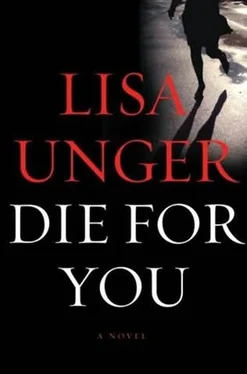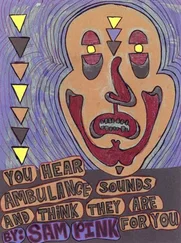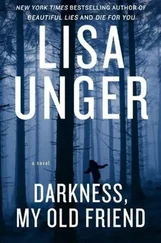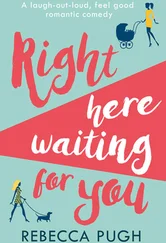I scanned the room quickly for anything I might use to defend myself, and my eyes came to rest on the wrought-iron fire poker on the hearth. I grabbed it too quickly, sending the stand and the other tools toppling loudly to the stone. In the aftermath of sound, even the house seemed to hold its breath. There was a deafening stillness where my mind raced through various options, none of them particularly appealing.
I DIDN’T GROW up in this house. Fred and my mother moved here shortly after I left home to go to NYU. Until then we’d stayed in the other house, a large, rambling, rundown old place, because my mother felt we’d lost too much to leave the only home we’d ever known. The studio where my father died was torn down and replaced with a garden my mother tended with care. “She spends more time out there than she ever did with him,” my sister observed bitterly. It was true, of course. And seeing her out there, on her knees in the dirt, pulling weeds and planting new bulbs in the spring, was not a comfort to us as the gardening must have been to her.
My sister and I could have left that house easily, every room, every creaking floorboard, every water stain akin to some memory of my father. Maybe it was my mother who wasn’t ready to leave it behind. Fred contented himself with laborious repairs and renovations that he could have easily hired out. Over time, he managed to update the plumbing and electricity, replace the roof, strip and stain old floors. There was painting and wallpapering, new carpets. By the time Margie and Fred left, the old house was fully renovated and sold to a young couple starting a family who wanted to leave the city. Fred told me later that it was therapy for him to restore that old house. There were a lot of things my father left behind that he couldn’t heal, places in the other man’s wake where he wasn’t wanted. But that house responded to his ministration, let him patch and repair its broken places. Like my mother’s memorial garden, it didn’t chafe with the attention, didn’t struggle, rebuff, or withdraw.
This house, this new house built to my mother’s specifications, was familiar but not native. I didn’t know which boards creaked. It didn’t have the hidden passages, old dumbwaiters, and storage cubbies. In this house, I couldn’t hide. I’d have to fight.
Luckily, terror is a shot of adrenaline to the heart. I’ve never been more awake or more alert as I moved carefully toward the dining room. But as I turned the corner, poker raised like a baseball bat, I found the room was empty. I paused at the entryway and listened, wondering for a moment if I was being paranoid, imagined the things I’d heard.
I moved quickly around the circle of rooms, wondering if I’d come upon a serene Fred sitting in his study. He’d be surprised to see me wielding a fire poker. But all the rooms were empty until I came to the foyer.
It took a second for the scene to register. Fred, that kind and good man, who’d cared for us all with patience and respect, lay still and white on the marble floor, an impossible amount of blood pooling from beneath his head. His arms and legs were slightly akimbo, as though he was preparing to make a snow angel. I dropped to my knees beside him, let the poker clatter to rest on the floor.
I didn’t have time to weep or scream. Those bulky shadows rose on the wall in front of me. I wasn’t alone. I spun around to see three men move into the foyer from the study. I realized that they must have been following me around the circle of rooms. I reached for the poker, but one of them kicked it away from me.
In spite of his tremendous size-six foot four at least, and well over 250 pounds-there was something sickly and almost fragile about this man, something unwell around the eyes. He was pale to the point of being gray. He held a ridiculously large gun, which he raised slowly, almost reluctantly, in my direction. I held very still, tried to take in all the details.
The other men, similarly armed, were slighter but just as menacing, shared his same unhealthy pallor. The two smaller men looked like brothers, each with sandy-blond hair and something weak about the set of their jaws. I tried to say something but the horror of my situation had made my mouth dry, filled my throat with gauze. I found myself inching backward, like a crab, on feet and hands. Every instinct in my body made me want to be away from these men.
The large man raised his free hand. “Just stay still,” he said with a smile. “Please don’t move.”
I recognized his voice instantly from the voice mail I’d heard. Ivan. But I was smart enough not to say so. I looked at each pair of eyes, searching for something I could relate to. But there was no fear, no remorse there. None of them even glanced in Fred’s direction, as if they were accustomed to being in the presence of violence and spilled blood.
“Just tell us where he is. And,” Ivan said, shrugging and pointing to the door, “we leave.”
I had completely lost my ability to communicate; this scenario was so far out of my frame of reference, something that I might have imagined and written. But nothing in my life had prepared me for this type of event. I looked over at Fred, then back at Ivan. He gave me an almost friendly smile but there was something terrible about it, something dark.
“He’s not dead,” he said lightly. He pointed to Fred and then to his own square brow. “The head. It bleeds a lot, you know?”
To illustrate, he walked over to Fred and gave him a soft kick in the ribs. I was elated to hear my stepfather groan in pain, see his eyelids flutter. I moved over to him quickly, felt his blood soak through my skirt. I put a hand on his forehead; it was cool and clammy. I looked up at the three men.
“If you’re looking for Marcus,” I said, finally finding my voice, “I have no idea where he is.”
Ivan regarded me carefully, seemed to size me up and consider my words. I became conscious of time passing quickly. My cell phone was in the pocket of my skirt. I wondered if I could press 911 and send without him noticing. Fred needed help fast.
“He betrayed me, stole from me,” Ivan said, angry, almost petulant. “He tried to kill me.”
He lifted his shirt with his free hand to show me a swath of bandages around his chest, too much blood-garish red against the white-seeping through the gauze. I saw sweat emerge on his gray forehead. Was he the one I’d heard screaming? One of his colleagues lit a cigarette and leaned against the wall. The smell filled my sinuses. I shifted my hand into my pocket. But Ivan shook his head at me. I removed it slowly.
“He betrayed me, too,” I said finally. We could have been discussing anything-the crumbling economy, bad weather, gravity, forces out of our control that can change our lives. I felt a sudden wash of rage.
“Look at me!” I yelled suddenly, startling all of them. Both of the smaller men raised their guns. The smoker let his cigarette drop to the floor. I pointed to my own head. “Someone did this to me. A tall woman, a blonde, from Czech like you. She destroyed Marcus’s office, probably my home, too. They took everything from me. If I knew where he was, do you think I’d be here ?”
Ivan considered me. I noticed a deep scar on his face, that his hands were callused. I was still yelling, trying to make him understand.
“Hush, hush,” he said, as though he was talking to a weeping child. And I realized I was weeping, big rivers of tears streaming down my face. I wiped at them with my sleeve. “Don’t yell.”
I saw it then, the way he didn’t like me yelling, was uncomfortable with my tears. He was a bit on the slow side, not quite disabled but someone with a very low IQ. There was something babyish about him, too, and something skittish. A child used to being brutalized, one who’d developed a flinch. Suddenly there was a strangely familiar expression on his face, something around his red-rimmed eyes, the corners of his mouth. I thought of Marcus’s photo album. Had he been in there? Had I seen him before?
Читать дальше












